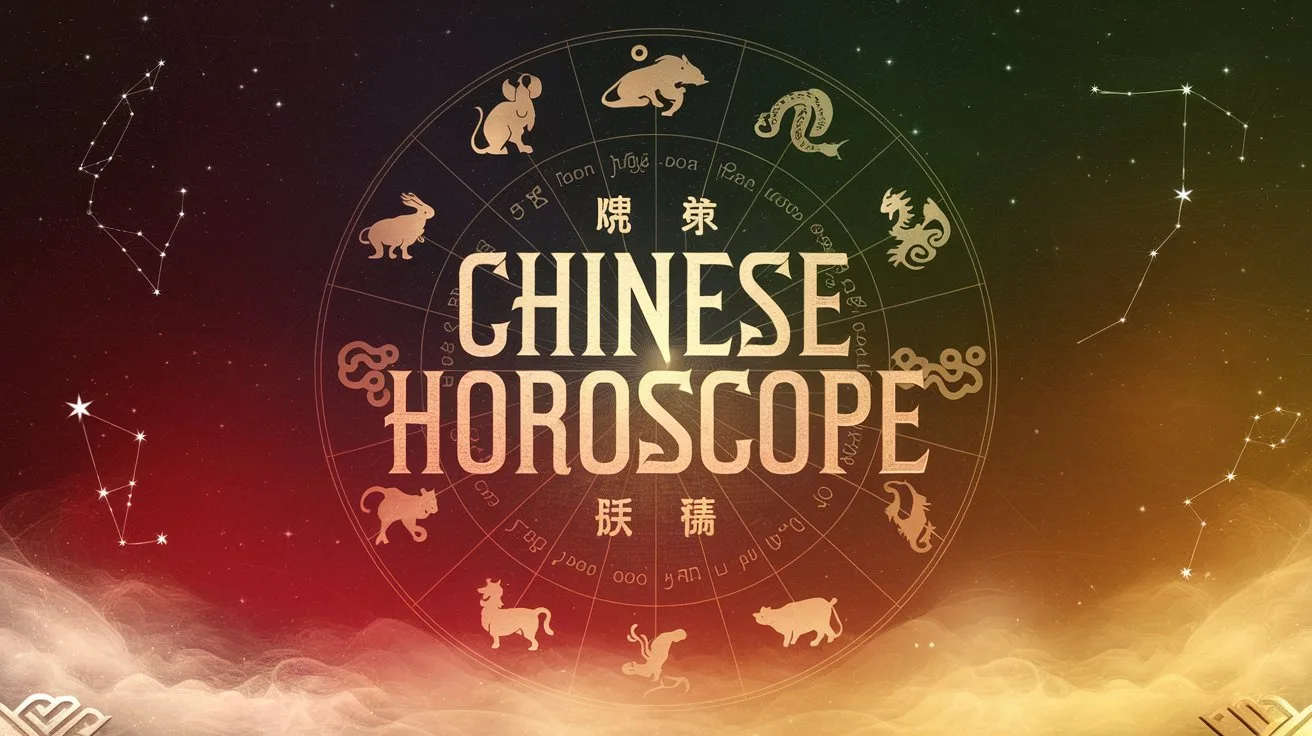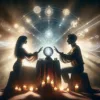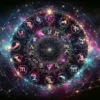Find out what the future holds according to the Chinese zodiac! Enter your birthdate to get your zodiac sign and predictions for 2024 and 2025. This tool combines ancient wisdom with modern insight for career, relationships, health and personal growth.
Chinese Zodiac Predictions for 2024 and 2025
Your Chinese Zodiac Sign:
Year 2024 Predictions:
Year 2025 Predictions:
About Chinese Zodiac:
The Chinese zodiac is a symbolic system that assigns an animal to each year in a 12 year cycle. Unlike the Western zodiac which is based on the months and seasons of the year, the Chinese zodiac is based on the lunar calendar with each zodiac year starting at Chinese New Year which falls between late January to mid February. This system has 12 animals – Rat, Ox, Tiger, Rabbit, Dragon, Snake, Horse, Goat, Monkey, Rooster, Dog and Pig – each representing specific personality traits, strengths and challenges believed to affect those born in that zodiac year.

The Significance of the Chinese Zodiac
The Chinese zodiac goes beyond personality traits and is deeply rooted in cultural traditions, celebrations and life events in East Asia. People use it to check compatibility, foresee opportunities and even determine auspicious dates for weddings or business launches. Each year the zodiac animal’s characteristics seeps into daily life, shaping people’s actions and the mood of the society. For example, a Year of the Dragon is considered a year of ambition and luck, a Year of the Ox is a year of perseverance and determination.
And each zodiac sign is also associated with one of the 5 elements – Wood, Fire, Earth, Metal or Water which rotates with the animals to form a 60 year cycle. This elemental influence is believed to add more layers to the personality and destiny of each sign.
Comparing the Chinese and Western Zodiac Systems
Both zodiacs are aimed to deliver an idea of personality and destiny but on two different bases. The Western zodiac segments the calendar into twelve astrological signs by taking Earth’s relationship with the Sun and stars, each one spanning roughly a month. These signs are Aries, Taurus, Gemini, and so forth, related to certain dates in every year, claimed to influence personality by the birth month rather than birth year.
The Chinese zodiac views an entire year rather than specific dates; however, this fits with the tradition belief in Asia that someone’s environment and the cycle surrounding them have a deep-rooted influence on who the person is. Finally, where the Western zodiac looks into constellations and the placement of planets, the Chinese uses cycles of time-lunar years-and elements in their construction of signs. Although the Western zodiac originates from Greek and Babylonian cultures, the Chinese zodiac comes from the I Ching and Taoist cosmology. The philosophy of yin-yang shapes the Chinese zodiac’s view of personalities.
Similarities Between the Chinese and Western Zodiacs
There are some points of similarity between the Chinese and Western zodiacs despite their many differences. They both have a purpose-to help one know themselves and understand what is happening with others in life. The personality traits attributed to each sign often have similarities: for instance, the confident and charismatic Dragon in the Chinese zodiac has much in common with Leo in the Western zodiac. Both zodiacs also have elements that define each sign; the Western zodiac contains Earth, Water, Fire, and Air signs, while the Chinese zodiac contains Wood, Fire, Earth, Metal, and Water.
Which System is More Accurate?
The question of accuracy often lies in the cultural context and the belief that an individual holds. There are zodiac systems which have been based on various cultural and philosophical backgrounds. People find one more apt than the other based on their belief or heritage. Though the scientific validation of astrological predictions is scarce, many people feel that character profiles given by both the systems match up with the personality and the life history of the individuals.
For people who relate to the Chinese zodiac’s cultural and elemental associations, it may be a more authentic system. Those who value holistic approaches such as Taoism or the yin-yang philosophy will appreciate the Chinese zodiac’s findings more, while those with affinity for Greek or Western tradition or like the idea of signs derived from star constellations may prefer the Western zodiac.
Who Should Believe in Which System?
For those interested in self-discovery, the choice between the Chinese and Western zodiac systems might come down to personal alignment with each system’s principles. The Western zodiac offers guidance on daily, monthly, or seasonal moods and behaviors, which can be particularly appealing for people looking for shorter-term predictions. In contrast, the Chinese zodiac offers broader themes and patterns to focus on throughout the year, ideal for individuals who prefer larger cycles and long-term reflections on character and destiny.
Ultimately, belief in one system over another is a matter of personal choice, and people often enjoy exploring both to see where their personality aligns. In fact, most people use both zodiacs to understand themselves more profoundly. The Western zodiac is good for giving insight into short-term personality quirks, while the Chinese zodiac provides a broader perspective of one’s character over time. Instead of opting for one system as “more accurate,” many people find that a combination of both views can offer a more complete picture of who they are and how they relate to the world.
Both have followers in cultures across the world and give unique insights into each individual. Be it the boldness of the Western Aries or tenacity of the Chinese Tiger, zodiac systems continue to provide people worldwide with a source of fascination, reflection, and guidance.










